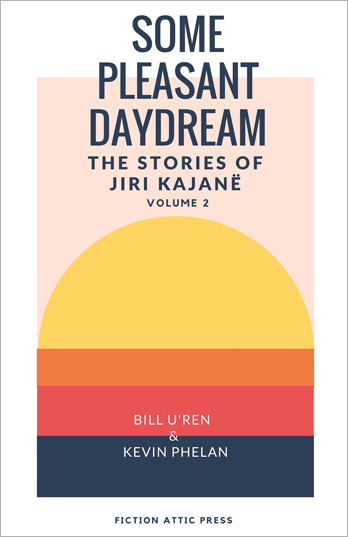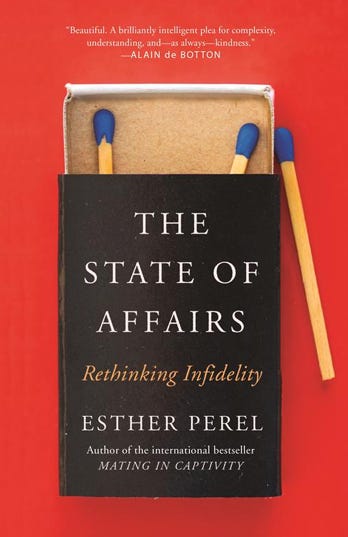A few years ago, the British bookstore WH Smith asked me to write a post about companion books to The Marriage Pact. The book, which was published in 30 languages, found its biggest audience in the UK, thanks in large part to the Richard and Judy Book Club.
Here, I offer you my complete immersion program for The Marriage Pact (the book, not the movement, which came later). Whether you’re into matrimony, mind control, propaganda, cults, or couples therapy, I hope you’ll find something enlightening and entertaining in the mix.
Obedience to Authority: The Experiment that Challenged Human Nature – Stanley Milgram
While studying psychology at university, Jake, the narrator of The Marriage Pact, immersed himself in the work of Stanley Milgram, author of Obedience to Authority. The book examines Dr Philip Zombardo’s 1971 Stanford Prison Experiment, in which students who were randomly assigned to the position of ‘prisoner’ or ‘guard’ took on their prescribed roles with terrifying consequences. Milgram’s work helped Jake to formulate his own ideas about power, corruption, and the susceptibility of seemingly intelligent people to mind control. Readers who are interested in the darker aspects of The Pact and its psychological underpinnings will enjoy this real-world story of ordinary, educated individuals surrendering their rights and values to an external power.
Writing for The Washington Post Book World, Michael Dirda called Obedience to Authority ‘the classic account of the human tendency to follow orders, no matter who they hurt or what their consequences’. Although Zombardo’s controversial methods have been seriously questioned and criticized on ethical grounds, many psychologists believe the experiment deepened our understanding of the human willingness to following unjust orders.
Some Pleasant Daydream: The Stories of Jiri Kajane
In The Marriage Pact, Alice works on a lawsuit brought by legendary Irish musician Liam Finnegan against a television show. The producers have stolen the idea for their show, Sloganeering, from a book by the obscure Albanian writer Jiri Kajane. Finnegan is a complete fiction, Jiri Kajane exists somewhere between fiction and reality, and the story itself was, in fact, the inspiration for Alice’s first big case, which leads her to Finnegan and thus to The Pact. The actual short story that inspires the TV series is ‘The Perfect Slogan’, collected in the book Some Pleasant Daydream: The Stories of Jiri Kajane: Volume 2.
The hero of Some Pleasant Daydream is Albania’s unnamed Deputy Minister of Slogans, who deftly navigates a culture of propaganda and doublespeak along with his friend and sidekick Leni. These are funny, poignant, satirical stories that involve two regular people in conflict with a powerful authority—in this case, the state.
Revolutionary Road – Richard Yates
Revolutionary Road is the first great novel of marriage I ever read. Yates’s novel presents a bleak and devastating view. Frank works long hours to achieve the trappings of success; April yearns for a life of more passion and meaning. Over time their disappointments, as well as their infidelities, become poisonous. (After Yates died, the book was adapted into a film of the same name, directed by Sam Mendes, starring Kate Winslett and Leonardo DiCaprio.)
For all their differences, my character Alice and April Wheeler share one dangerous misconception. ‘I still had this idea that there was a whole world of marvellous golden people somewhere’, April Wheeler says, ‘…Sort of heroic super-people, all of them beautiful and witty and calm and kind, and I always imagined that when I did find them I’d suddenly know that I belonged among them, that I was one of them, that I’d been meant to be one of them all along’. When Alice and Jake are invited into The Pact, they think they have found the golden people, a group so perfect, so at ease in their skin, that they can help the newlyweds have the perfect marriage. But Jake and Alice learn, as Fred and April did, that perfection is impossible, and striving for it comes at enormous cost.
Troublemaker: Surviving Hollywood and Scientology – Leah Remini
Before she was the star of the hit American TV show The King of Queens, Leah Remini was a committed adherent to The Church of Scientology and one of its most famous defenders. After questioning the church’s tactics, she went from being Scientology’s poster child to one of its most visible and vocal critics.
Her public break with Scientology in 2013 resulted in lawsuits, exile from friends and family, and threats. Troublemaker is her story of thirty years in Scientology, how and why she started to question her beliefs, how she made the break, and the challenges she faced after leaving.
The State of Affairs: Rethinking Infidelity – Esther Perel
Like Jake, Esther Perel is a marriage therapist. Unlike Jake, she’s a real person! I wish I’d had opportunity to read this book and listen to Perel’s excellent podcast before I wrote The Marriage Pact. Drawing from her many years of experience as a couples therapist, Perel delves into the motivations behind infidelity and the damage it does to marriages. Beyond that, however, she attempts to find a way for couples to recover from the deep trauma of unfaithfulness and even, in many cases, to strengthen their marriages in its painful aftermath.
While The Pact would severely punish any of the couples whose stories are shared in this book, Perel takes a kinder, gentler, and ultimately less terrifying approach to infidelity.
And a film…
The Game, directed by David Fincher, starring Michael Douglas and Sean Penn
The Game begins with a gift from the rapscallion Conrad (played by Sean Penn) to his investment banker older brother, Nicholas Van Orton (played by Michael Douglas). Nicholas is divorced, extremely successful in his career, somewhat bored, and deeply unhappy. Out of curiosity, he agrees to a battery of psychological tests ordered by the company Consumer Recreation Services, in order to participate in this mysterious game. When the company determines he is unfit, he becomes livid. After all, Nicholas Van Orton is not accustomed to rejection. However, a series of escalating psychological and physical torments leads him to believe that he is indeed playing the game, and there is no way out.
The film is a good companion piece for The Marriage Pact because both begin with a seemingly generous gift, both show a protagonist being pulled deeper into the nightmarish vortex of a powerful organization, and both ask the question: do the ends justify the means?










